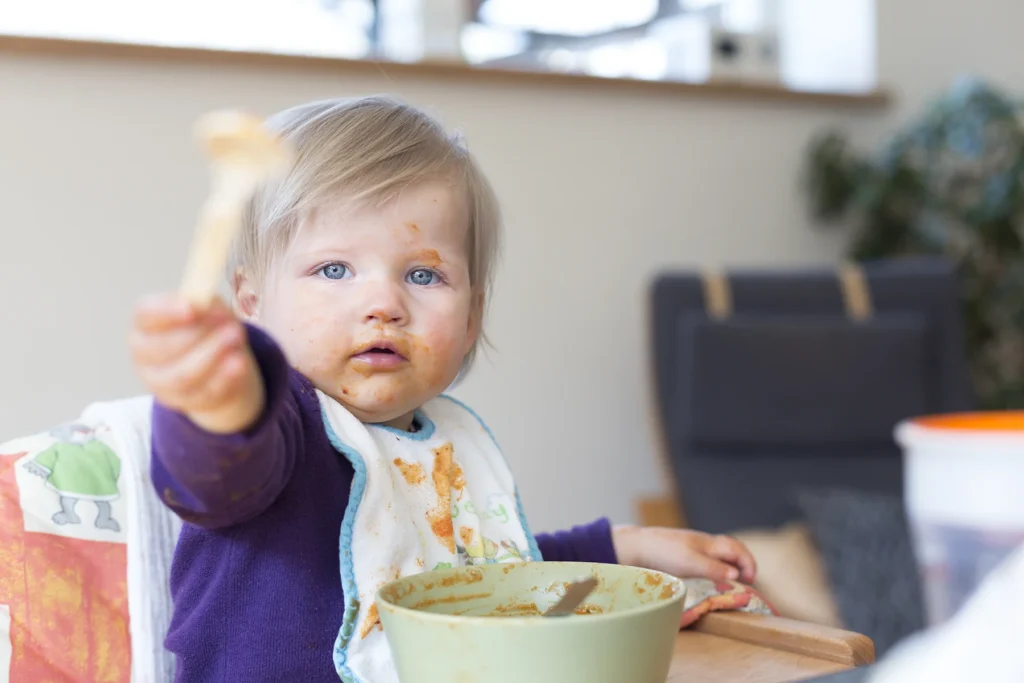Mealtimes are much more than just filling the stomach – they are a daily learning situation where children develop motor, social and emotional skills. By taking part in mealtimes, children practice skills that promote independence, safety and interaction. Here we explain why every mealtime is an opportunity to support children’s development.
Mealtime child development is a strong link that is often overlooked. At every meal, children don’t just practice eating – they learn structure, communication, body control and turn-taking. A mealtime with children is an everyday but valuable ritual that strengthens several areas of development at once.
When a child learns to feed itself, motor skills develop rapidly. Grasping a spoon, bringing it to the mouth and coordinating movements require both precision and patience. Fine motor skills during feeding are an important part of preparing the child for other skills such as drawing, building and writing.
Independence for babies is not just about feeding themselves, but about taking responsibility for their body and their needs. Allowing them to try things out for themselves, even if it gets messy, helps build their confidence.
Mealtime is also a social space. Children learn turn-taking, eye contact, mimicking behaviors and new words – all in a relaxed environment. When you eat together with your child, you are not only building relationships – you are also modeling social learning.
Young children learn a lot by observing others. Therefore, it is valuable to let your child sit at the table as often as possible, even if they do not eat large amounts.
Mealtimes that take place in a safe and calm environment help children feel secure and relaxed. Eating at the same time, in the same place, with the same people creates recognition and emotional stability.
Emotional development is enhanced when children have positive experiences linked to food. Avoid stressing or pressuring – instead make mealtimes something to look forward to. Mealtime routines for toddlers also help the child understand what is expected.
So learning to eat is not just about nutrition – it is a holistic experience of growing, exploring and becoming part of the community.

Mealtimes are a natural, everyday opportunity to strengthen children’s development – motor, social and emotional. When children learn to eat on their own, at their own pace, they develop independence, coordination and confidence. By creating a positive mealtime environment and offering the right tools, you give your child the best conditions to develop with every bite. Want to see products that facilitate self-feeding and motor skills training? Explore our range today